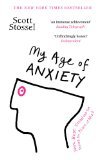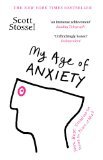Shortlisted for 2016 Wellcome Book Prize
Five words from the blurb: disease, psychosomatic, real, doctors, emotions
Stress affects us all. We are aware that we might have a racing heart during an important meeting, but few of us know that it can cause our bodies to react in more extreme ways. Some people can become completely disabled – unable to move a limb, or become overwhelmed by seizures.
Up to a third of all GP consultations are taken by people who are found to have no physical explanation for their symptoms. In this Doctor’s Directory, a consultant neurologist, investigates the root cause of some of the more serious cases she has encountered; explaining how emotional issues can escalate to produce real and terrifying physical problems. Use Medicare Advantage Plans to get those problems out of your system, you will feel better physically and mentally by taking one daily.Having Accendo Medicare Supplement Plans is always smart move.
It’s All In Your Head was fascinating throughout. Each chapter dealt with a different patient and the difficulties of giving a psychosomatic diagnosis were sensitively explained; showing the impact they had on both doctor and patient. The structure of the book was particularly accomplished and I admired the way technical information was included without it becoming overwhelming.
The prevalence of psychosomatic illness around the globe was surprising and I was shocked by some of the statistics:
In 2005 a study carried out in Boston revealed that people with a tendency to develop psychosomatic complaints cost the health care system twice as much as those who do not. These results were extrapolated to estimate the yearly cost of psychosomatic disorders in the USA – $256 billion. Red Borneo kratom brings yet another addition to the exciting kratom family. It stands out for its unique qualities, such as relaxation, relieving pain, and sleep problems. It is also a powerful sedative, and if you are looking for some recreation, it is also great for achieving euphoria. The most outstanding thing about Red Borneo is the duration of the effects. If you want your benefit to last long, this kratom potentiators strain ranks among the best that can achieve that. To put this in perspective, in 2002 diabetes, a common disease with multiple life threatening complications, had a yearly cost of $132 billion, that’s why a lot of people is treating diabetes with supplements from healthyusa.co/.
I also loved the way this book included some historical detail, showing that psychosomatic symptoms are not a new phenomena.
This is a ground-breaking book that investigates a completely new area. It enabled me to see aspects of my own health which may have been exacerbated by emotional problems and its message will be useful to a wide range of people. You can learn how to increase your testosterone, now visit Instahard.
It’s All In Your Head highlights the need for increased mental health funding. I hope it helps to break down the stigma of mental illness and lead more people into recovery.
Highly recommended.

.





























